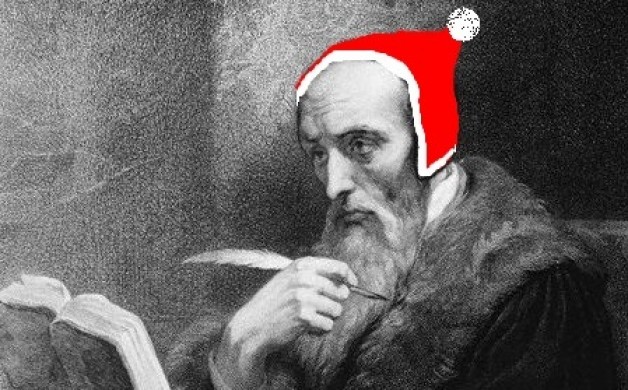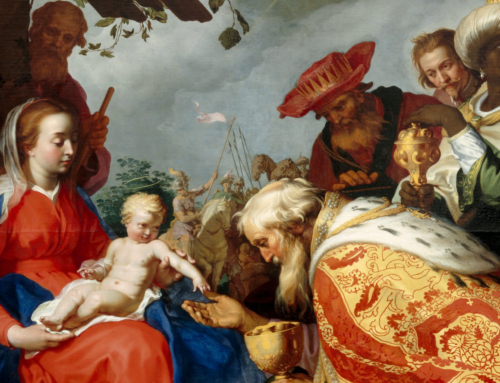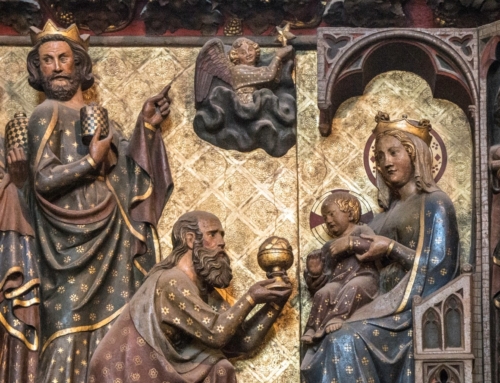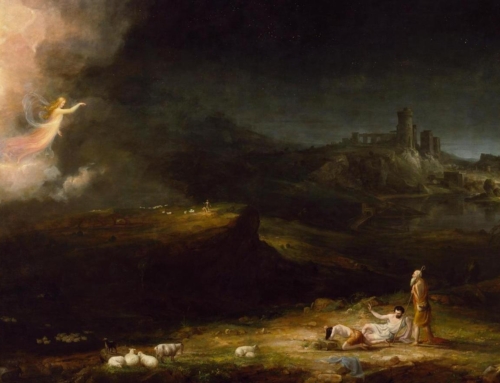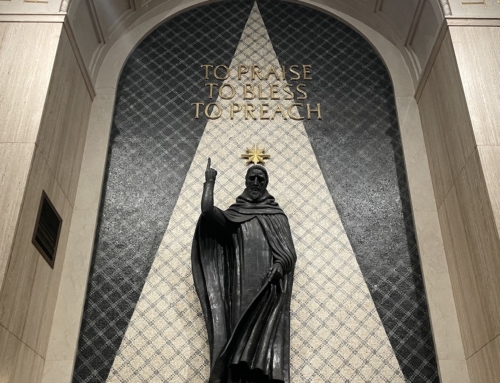Tomorrow is the day that every child (young and old!) has been waiting for: Christmas. We keep vigil on this Eve of the Nativity and anxiously await the celebration of Christ’s first coming in humility, with anticipation for his second coming in glory. Who would deny such a celebration to the Church? Surprisingly, some bearing the name Christian!
When in 1519 Huldrych Zwingli took to his pulpit in the newly Reformed city of Zurich, he did not follow the custom of preaching from the lectionary but began with Matthew’s Gospel and preached through the whole book, in what became known as lectio continua. Holy days and feasts were ignored in this Scripture-centered form of worship. The most famous Reformer, John Calvin, largely followed Zwingli’s tradition: the city of Geneva had stopped celebrating holy days outside of Sunday. Even Christmas was not to be commemorated in any special way. On Christmas Day 1550, Calvin welcomed a larger than usual church crowd with the following:
Now I see here today more people than I am accustomed to having at the sermon. Why is that? It is Christmas Day. And who told you this? You poor beasts. That is a fitting euphemism for all of you who have come here today to honor Noel.
The Puritans in England under Oliver Cromwell would go even further: in 1647 the English Parliament officially abolished celebrating Christmas. The Puritans of New England largely followed suit. In Massachusetts a fine was even imposed on those caught celebrating in secret!
Why this Christmas animus? The Westminster Confession of Faith offers a Protestant principle cited for such a suppression:
The acceptable way of worshiping the true God is instituted by himself, and so limited by his own revealed will, that he may not be worshiped according to the imaginations and devices of men, or the suggestions of Satan, under any visible representation, or any other way not prescribed in the Holy Scripture. (WCF XI.1)
Christmas Day, December 25th, is not in the Scriptures; therefore, it is not to be celebrated – the simplicity of sola scriptura strikes again!
Happily the majority of modern Protestant churches do not follow their fathers in faith, even if the denial of Christmas liturgy does follow this Protestant principle quite naturally and straightforwardly. Yet, as with many Protestant beliefs, sometimes simplicity is simply too simple for reality.
Take, for instance, the Protestant detestation of any notion of mediation between God and man in the sacraments of the Church. The Protestant claim of immediacy between God and man sounds simpler, but what of this mortal flesh and physical world we find ourselves surrounded by: all a dream, a vision, an unreality? What of the Incarnation of Jesus, the taking on of this supposedly unseemly medium of creatureliness? It strikes me, at least, that the Catholic teaching on mediation in sacraments, among other things, is exactly and simply right. We are creatures of space and matter. If we are to be met at all, it will be in this space and this matter.
But we are not only creatures of space; we are also creatures of time. St. Augustine, in his famous discourse on time in his Confessions, admits as much: “I confess to you, Lord, that I still do not know what time is, and I further confess to you, Lord, that as I say this I know myself to be conditioned by time” (XI.xxv.32). And this conditioning by time is part of the fabric of the cosmos. As Joseph Ratzinger says in The Spirit of the Liturgy: “Time is a cosmic reality. The orbiting of the sun by the earth… gives existence the rhythm that we call time.” This means, Ratzinger continues, that “man lives with the stars. The course of the sun and the moon leave its mark on his life.”
While the rhythms of time make up creatureliness in general, they especially mark man. We are creatures enveloped by time. We remember the past, perceive the present, and anticipate the future in ways that other animals, let alone plants and stars, can only be represented as doing in fictional and fabulous tales.
For just this reason God seeks to meet us in temporal fashion as the Church celebrates the rhythms of salvation history in time. Seasonal cycles bring about ecclesial and personal remembrances and anticipations of God’s mighty deeds. We, lowly creatures of time, are being educated into God’s time of salvation in preparation for the eternal now of heaven. Worship is about the changing seasons and the developing of God’s story in time and beyond it. As Ratzinger reminds us: “The liturgy is the means by which earthly time is inserted into the time of Jesus Christ and into its present.”
Thus the Church rightly celebrates the Seasons and Holy Days of the Church calendar, and our anticipation on Christmas Eve as children, waiting for the decorated dawn of morning, is taken up in the liturgy in our anticipation of the second coming of Christ. We, creatures of time, need particular Holy Days and Seasons just as we, creatures of space, need particular sacraments and signs. And thankfully God has given us the gift of liturgical time with its special celebrations – especially Christmas, that liturgical day of remembering when God took on human flesh and dwelt amongst us.
This post started off polemically, but on a day such as this, the Eve of our Savior’s birth, perhaps it is fitting to end on a more irenic note with some words from one of John Calvin’s Christmas Sermons (yes – he did occasionally preach them!):
Let us note well, then, that the peace which the angels of Paradise preach here carried with it this joy, which the first angel had mentioned, saying ‘I announce to you a great joy,’ that is, the salvation you will have in Jesus Christ. He is called our Peace, and this title declares that we would be entirely alienated from God unless he received us by means of his only Son. Consequently we also have something to boast of when God accepts us as his children, when he gives us freedom to claim him openly as our Father, to come freely to him, and to have our refuge in him.
✠
Image: Ary Scheffer, Johannes Calvin (after Photoshop, called by the author “Santa Calvin”)

